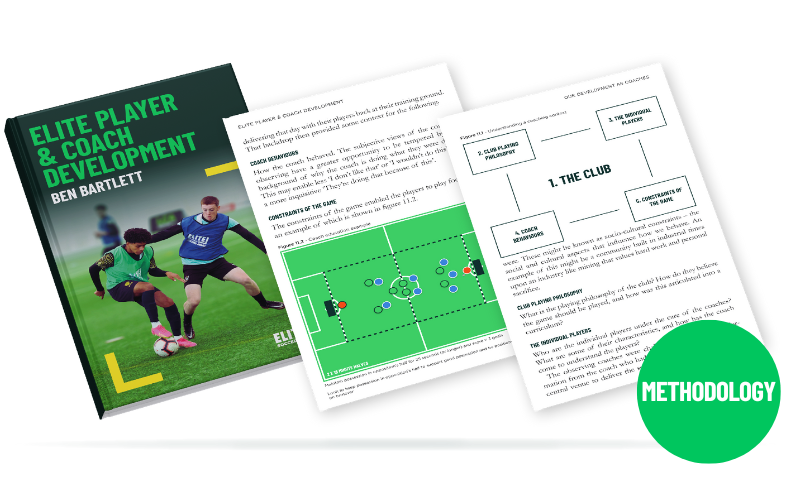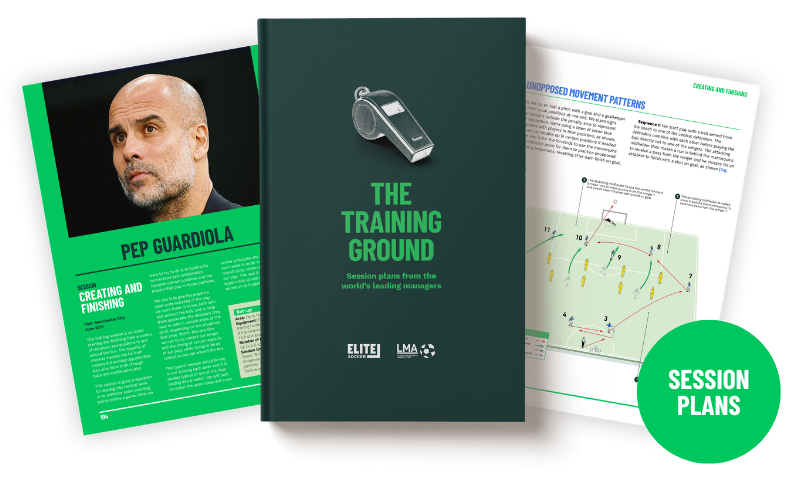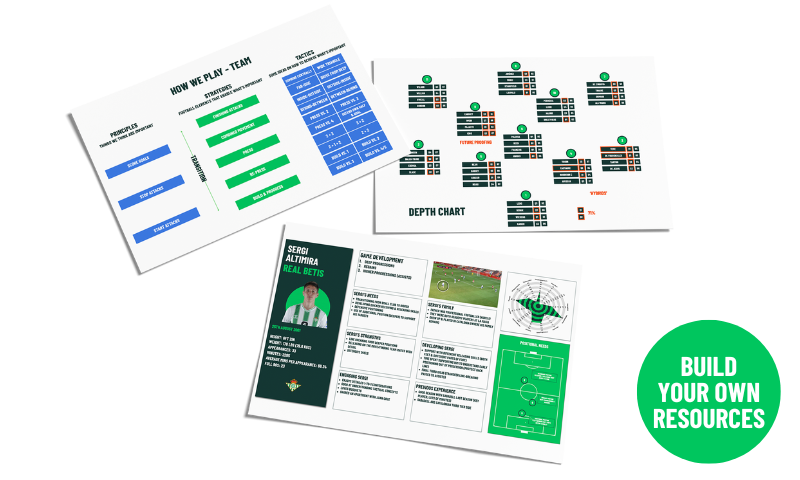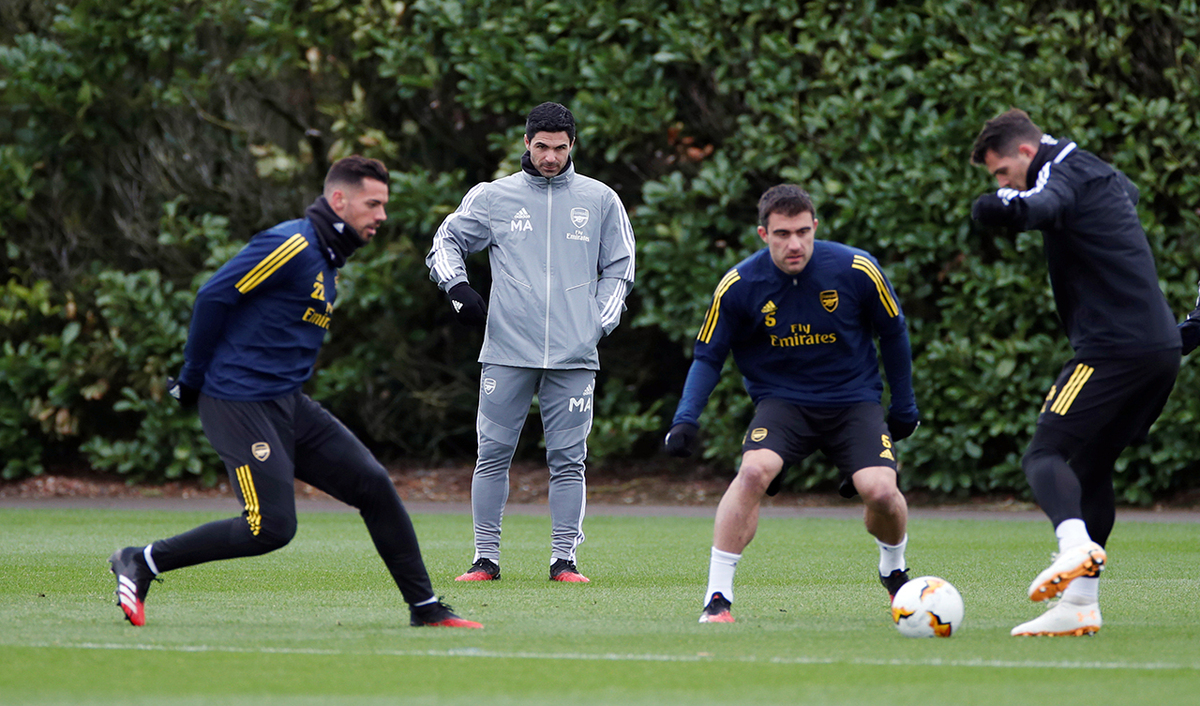




OUR BEST EVER OFFER - SAVE £100/$100
JOIN THE WORLD'S LEADING PROFESSIONAL DEVELOPMENT PROGRAMME
- 12 months membership of Elite Soccer
- Print copy of Elite Player & Coach Development
- Print copy of The Training Ground
You are viewing 1 of your 1 free articles
How to improve player confidence
Sport psychologist Dan Abrahams discusses how a technique called ‘scaling’ can give a struggling player a confidence boost
A season in football offers up very few guarantees. Your team’s form, the amount of wins you’ll attain, your finishing league position – these are outcomes that are impossible to predict. But what is more predictable, guaranteed even, is that some, if not most of your players, are going to experience a drop in confidence at some point throughout the season.
Confidence: that elusive mental state that has such a profound impact on performance. No doubt as a coach, you’ve spent a fair amount of time in your career trying to help players manage their confidence levels. In my experience, the simplest, easiest and quickest way to help a player who’s low in confidence is to use a psychological technique called ‘scaling’.
Scaling can be used while talking with a player on the pitch in a training session, or it can be brought out in a broader conversation away from the training ground. Here is an example to illustrate how scaling works. Let’s imagine you’re working with a striker who’s experiencing a slump in form and hasn’t scored for a number of games. This player looks a little beaten up mentally – poor body language, uncertain when the ball is delivered into the area, indecisive when confronted with a chance to shoot. So you start a conversation related to what you’re observing.
Coach: “Hey, you’ve not been looking your confident self around the penalty area lately, can we have a chat about it?”
Player: “Yeah, I haven’t scored for some time and it’s really getting to me. I’ve lost a bit of confidence
I guess”
Coach: “Okay, I hear you. Can you tell on a scale of 1 to 10, with 10 being the most confident you can be, and 1 being the least, where would you put yourself
on that scale?”
This is a classic scaling question designed to help a player self-appraise where he or she is right now. This first step helps a player start to rationalise their situation.
Player: “Um, I’m not sure. I guess I’d say pretty low – perhaps a 4. Yep, 4 out of 10”
Coach: “Okay, 4. That’s pretty high. What’s made you say 4 rather than 2 or 3?”
This is a useful question that re-frames the player’s answer. Now’s your chance to ask them to consider what is actually working, or what is strong. What things have been going well.
Player: “Well, I guess it’s not all been bad. I’ve created some chances in the last few weeks, so
that’s been a plus. Also my hold-up play has been pretty good”
By answering your question the player has been forced to consider what has been going well. The player is encouraged to start examining positives amongst the negatives that he or she is experiencing.
Coach: “I agree. I think your hold-up play has been great. I also remember the runs you’ve made and the little movements peeling off the defenders to find that space. You look really sharp when you do that. Can you tell me more about that?”
The coach is affirming the positives and asking the player to elaborate. Coaches should always look for opportunities to affirm positives with players who are low in confidence, and then try and help them to expand on what’s going well.
Player: “I remember losing my marker, being one step ahead. Yeah, I was pretty lively there, that was great… especially as the defender was pretty quick.”
Coach: “Fantastic! Now, you said you were 4 out of 10. Can you tell me what 6 out of 10 confidence looks like? If you were 6 out of 10 what would you be doing better? What would it look like?”
Now the coach is asking the player to consider what playing with more confidence might look like. In this way the coach can help the player consider the playing behaviours that relate to 6 out of 10 confidence. Notice the coach didn’t ask what 10 out of 10 looks like – small incremental improvements can often feel more attainable for players.
Player: “I think I’d just be more decisive when getting shots away. At the moment I’m scared of missing. I’d be more decisive and just focused on getting a great strike. Once I start doing that I know I’ll feel better”
Coach: “Great. Let’s work together on that. I’ve got some activities to help you do this.”
Confidence is a strong mediator of success. A drop in confidence can have a devastating impact on a player’s game. Incorporating scaling into your coaching arsenal can give you a new way to help your players build their confidence levels.
Editor's Picks
Attacking transitions
Deep runs in the final third
Using the goalkeeper in build-up play
Intensive boxes drill with goals
Penetrating the final third
Creating and finishing
My philosophy
Pressing initiation
Compact team movement
Coaches' Testimonials

Alan Pardew

Arsène Wenger

Brendan Rodgers

Carlos Carvalhal

José Mourinho

Jürgen Klopp

Pep Guardiola

Roy Hodgson

Sir Alex Ferguson

Steven Gerrard
Coaches' Testimonials

Gerald Kearney, Downtown Las Vegas Soccer Club

Paul Butler, Florida, USA

Rick Shields, Springboro, USA

Tony Green, Pierrefonds Titans, Quebec, Canada
Join the world's leading coaches and managers and discover for yourself one of the best kept secrets in coaching. No other training tool on the planet is written or read by the calibre of names you’ll find in Elite Soccer.
In a recent survey 92% of subscribers said Elite Soccer makes them more confident, 89% said it makes them a more effective coach and 91% said it makes them more inspired.
Get Monthly Inspiration
All the latest techniques and approaches
Since 2010 Elite Soccer has given subscribers exclusive insight into the training ground practices of the world’s best coaches. Published in partnership with the League Managers Association we have unparalleled access to the leading lights in the English leagues, as well as a host of international managers.
Elite Soccer exclusively features sessions written by the coaches themselves. There are no observed sessions and no sessions “in the style of”, just first-hand advice delivered direct to you from the coach.






